SUMMARY
This is AI generated summarization, which may have errors. For context, always refer to the full article.

KYIV, Ukraine – Ukraine narrowly escaped disaster during fighting at the weekend that rocked Europe’s
largest atomic power plant with a barrage of shells, some falling near reactors and damaging a radioactive waste storage building, the UN nuclear watchdog said.
Russia and Ukraine on Monday, November 21, traded blame for at least a dozen explosions at Ukraine’s Zaporizhzhia nuclear power station, which has been under Russian control since soon after it invaded the country on February 24 but is across the Dnipro river from areas controlled by Kyiv.
Ukraine’s President Volodymyr Zelenskiy urged NATO members to guarantee protection from “Russian sabotage” at nuclear facilities. The head of Russia’s state-run nuclear energy agency, Rosatom, said it had discussed Sunday’s shelling with the IAEA, and said there was a risk of a nuclear accident.
The assault came as battles raged further east following Russian troop movements into the industrial Donbas region from around Ukraine’s recently recaptured Kherson in the south.
Whoever fired on the plant was taking “huge risks and gambling with many people’s lives”, said Rafael Grossi, director general of the International Atomic Energy Agency (IAEA).
Reuters could not immediately verify which side was responsible. The attacks also hit a cooling pond, a cable to one reactor and a bridge to another, according to an IAEA team on the ground citing information provided by plant management.
“We were fortunate a potentially serious nuclear incident did not happen. Next time, we may not be so lucky,” Grossi said in a statement late on Sunday, describing the situation as a “close call”.
“We are talking metres, not kilometres,” he said.
Repeated shelling of the plant during the war has raised concern about a grave disaster in the country that suffered the world’s worst nuclear accident, the 1986 Chornobyl meltdown.
Radiation levels remained normal and there were no reports of casualties, the IAEA said. While there was no direct impact on nuclear safety and security systems, “the shelling came dangerously close”, Grossi said.
Missle strikes
Russia’s response to military setbacks in recent weeks has included a barrage of missile strikes, many on power facilities that have left much of the country without electricity as winter sets in and temperatures drop below freezing.
Zelenskiy said that half of the country’s power capacity had been knocked out by Russian rockets.
Grossi spoke to world leaders and reiterated the need for a nuclear safety and security protection zone around Zaporizhzhia, the IAEA said.
CEO Alexei Likhachev said Rosatom been in negotiations with the IAEA “all night”, Interfax reported.
Rosatom has controlled the facility through a subsidiary since President Vladimir Putin in October ordered Russia to formally seize the plant and transfer Ukrainian staff to a Russian entity. Kyiv says the transfer of assets amounts to theft.
Kyiv controls territory across the river from the power station, including the regional capital. The Zaporizhzhia plant itself and territory south of it fell to Russia in March.
The IAEA team plans to conduct an assessment on Monday, Grossi said.
The Zaporizhzhia plant provided about a fifth of Ukraine’s electricity before Russia’s invasion, and has been forced to operate on back-up generators a number of times. It has six Soviet-designed VVER-1000 V-320 water-cooled and water-moderated reactors containing Uranium 235.
The reactors are shut down but there is a risk that nuclear fuel could overheat if the power driving the cooling systems is cut. Shelling has repeatedly cut power lines.
Russia’s defense ministry said Ukraine fired at power lines supplying the plant. Ukraine’s nuclear energy firm Energoatom said Russia’s military shelled the site, accusing it of nuclear blackmail and actions that were “endangering the whole world”.
‘Fiercest battles’
In eastern Ukraine, Russian forces battered Ukrainian frontline positions with artillery fire, with the heaviest attacks in the Donetsk region, Zelenskiy said in a video address on Sunday evening.
Russia withdrew its forces from the southern city of Kherson this month and moved some of them to reinforce positions in the eastern Donetsk and Luhansk regions, collectively known as the Donbas.
“General Armageddon”, as the commander who argued in favor of the withdrawal from Kherson is known, is now under growing pressure to prove it was worth it by making gains in the east.
Ukraine’s military, in an early Monday update, confirmed heavy fighting over the previous 24 hours, saying its forces had repelled Russian attacks in the Donetsk region while Russian
forces were shelling the Luhansk region and Kharkiv.
“The fiercest battles, as before, are in the Donetsk region. Although there were fewer attacks today due to worsening weather, the amount of Russian shelling unfortunately remains extremely high,” Zelenskiy said.
“In the Luhansk region, we are slowly moving forward while fighting. As of now, there have been almost 400 artillery attacks in the east since the start of the day,” he said.
Reuters was not immediately able to verify the battlefield reports.
In the south, Zelenskiy said troops were “consistently and very calculatedly destroying the potential of the occupiers” but gave no details.
Kherson city remains without electricity, running water or heating.
Russia calls its invasion of Ukraine a “special operation” to demilitarize its neighbor. Kyiv and allies say the invasion is an unprovoked war of aggression. – Rappler.com
Add a comment
How does this make you feel?

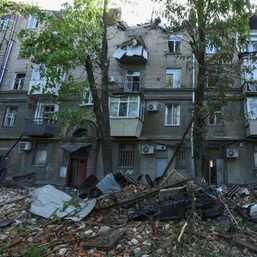
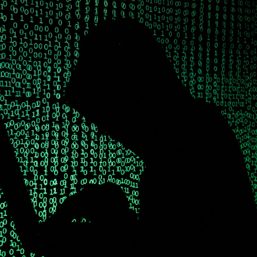
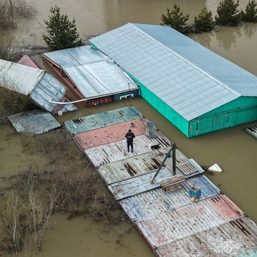

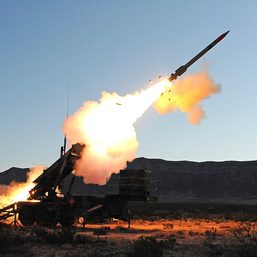
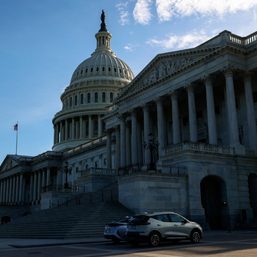
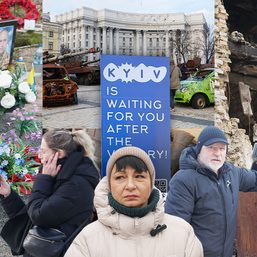
There are no comments yet. Add your comment to start the conversation.